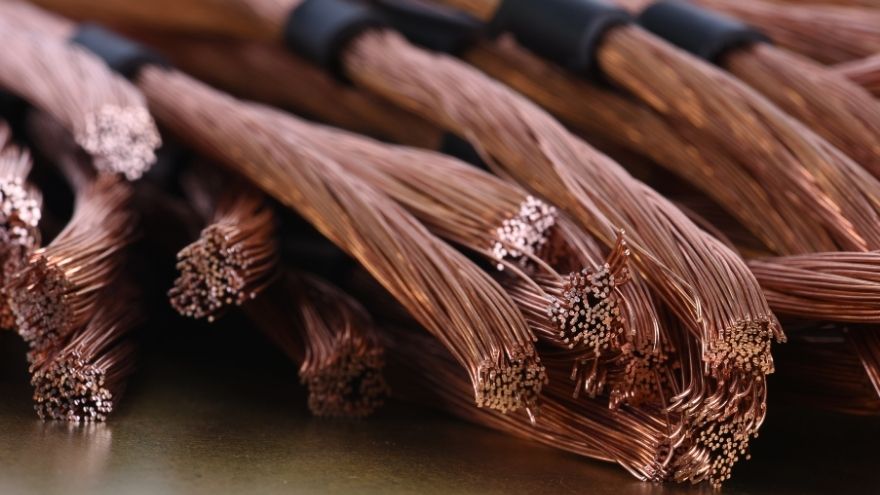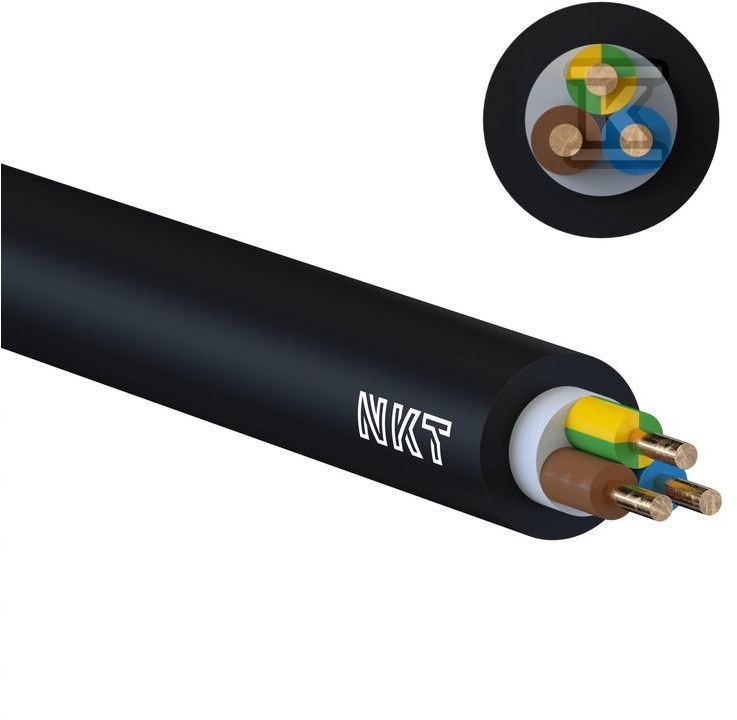Copper cables are valued by specialists in many industries. Their numerous advantages mean that they have many applications. Where exactly are they used? What are the arguments for choosing them? How do they differ from aluminum cables in practical terms? What should you pay attention to when choosing copper cables? You will find the answers to these questions in our new guide.

Check out the copper cables at the Onninen wholesaler
Copper Cables and Wires – The Most Important Advantages
![]() There are many arguments in favor of using a copper cable or wire in a given installation. One of the most important is high electrical conductivity. Copper is a better conductor than many other materials, which allows for efficient transmission of energy in the power grid and minimization of losses. Cables of this type are perfect for installations with a large number of receiving devices requiring high power - even in large industrial plants.
There are many arguments in favor of using a copper cable or wire in a given installation. One of the most important is high electrical conductivity. Copper is a better conductor than many other materials, which allows for efficient transmission of energy in the power grid and minimization of losses. Cables of this type are perfect for installations with a large number of receiving devices requiring high power - even in large industrial plants.
When designing an electrical installation, it is also worth paying attention to the corrosion resistance of individual options. Copper cables are very good in this respect. They therefore have a positive effect on the resistance of the entire installation. Copper installation cables retain their properties for a long time, and thanks to their high flexibility, they are less susceptible to mechanical damage resulting from bending and stretching. The use of this type of cable not only improves the safety of the installation, but also reduces the costs associated with its maintenance.
Difference in applications between copper and aluminum cables
Copper and aluminum cables differ primarily in conductivity, strength, and application. Copper cables are more flexible, which makes installation, maintenance, and modification easier. Aluminum cables, although much cheaper and lighter, have lower conductivity, which requires the use of larger wire cross-sections. Due to their lower cost and weight, they are often used in large outdoor installations - e.g. in high-voltage transmission lines.
In which installations will copper cables be the best solution?
Electric cables made of copper are used in many areas. The most important examples of their use are:
- electrical installations in residential and public buildings : thanks to their excellent electrical conductivity, copper wires ensure high energy transfer efficiency and can be used even if high-power receivers are planned to be connected. These types of wires are also highly flexible, which makes them easy to install in various layouts;
- telecommunications systems : high conductivity and resistance to interference make copper wires an ideal solution in data transmission networks, ensuring connection stability;
- industrial installations : durability and protection against mechanical damage enable the use of copper cables in installations supplying power to production lines and industrial automation systems, ensuring reliability and safety regardless of power consumption, humidity level or temperature.
Types and Purpose of Copper Cables
The different types of copper cables differ from each other in several factors. The most important are the structure and materials used as individual layers. Depending on them, we distinguish:
Single core cables
 They consist of a single copper wire covered with plastic insulation. They are used in installations with low requirements.
They consist of a single copper wire covered with plastic insulation. They are used in installations with low requirements.
Multi-core cables
They are made of several thin, intertwined copper wires. They provide greater flexibility and resistance to mechanical damage than multi-core cables.
Shielded cables
They consist of one or more copper wires surrounded by a layer of shielding material (usually metal foil). The shielding protects signals from electromagnetic interference, making them an ideal solution for installation in control and data transmission systems.
Coaxial cables
Their core is surrounded by an insulator, a metal screen, and a protective layer. They can transmit high-quality signals. They are widely used in telecommunications – especially as television and internet cables.
Armored cables
A special type of copper cables with additional reinforcement that increases their resistance to mechanical damage and external factors.
What technical parameters should you pay attention to before purchasing copper cables?
Whether cables and wires will work well in a specific application depends on many factors. The most important of them are:
Wire cross-sections
One of the most important parameters is the cross-section of the wire in square millimeters. It directly affects conductivity. The larger the cross-section, the greater the electrical load the cable can carry without the risk of overheating. For home installations, power cables with a cross-section of 1.5 mm² are usually used for lighting and 2.5 mm² for power sockets. In the case of more demanding installations (e.g. industrial), it may be necessary to use wires with a cross-section of 10 mm².
Temperature resistance
Copper cables can be exposed to varying temperature conditions. Therefore, it is important to check the temperature range in which the cable can operate. This is most important if the cable will be used in industrial or outdoor environments.
Type of insulation
Cable insulation affects their resistance to mechanical damage, moisture and external factors. On the market you will find cables with the following types of insulation:
- PVC : Most commonly found in home electrical installations. PVC copper cables are cheap but provide sufficient strength for standard use;
- XLPE (cross-linked polyethylene): more resistant to temperature and chemicals, used primarily in industrial installations;
- non-flammable insulation : recommended in installations used in facilities with increased fire risk.
Cable flexibility
If you expect to change the position of the cables frequently or bend them at sharp angles, the best choice will be multi-core cables. Thanks to their construction, they are more flexible and resistant to mechanical damage. The more flexible the cable, the easier it is to install, especially in hard-to-reach places.
Thanks to their excellent conductivity, flexibility, corrosion resistance and durability, copper cables can be used in both domestic and industrial installations. By investing in cables with the right parameters, you gain certainty about the long-term and trouble-free operation of the installation - without the risk of downtime and the need for expensive repairs.
